





Tsiklovir
Application instruction:
Tsiklovir – antiviral  synthetic medicine.
synthetic medicine.
Pharmacological action
Active component of Tsiklovir – an acyclovir, has antiviral effect.
Effect of drug is based on formation of "defective" virus DNA which leads to suppression of reproduction of new generations of viruses.
Tsiklovir shows activity concerning a cytomegalovirus, and also viruses:
• Varicella zoster;
• Herpes simplex (types 1 and 2);
• Epstein-Burra.
Release form
Tsiklovir release in the form of the tablets containing active component an acyclovir in number of 200 mg and also in the form of cream and ointment for external use and an oculentum.
Active agent an acyclovir also is a part of some other medicines, such as Vivoraks, Provirsan, Medical OVIR, Gerperaks, Atsigerpin and the Acyclovir.
Indications to Tsiklovir's use
According to the instruction Tsiklovir appoint for system use in the following cases:
• At treatment of the infections caused by the Varicella zoster and Herpes simplex viruses of types 1 and 2 and also as a part of preventive actions, including states against the background of reduced immunity;
• In complex treatment after transplantation of marrow at the expressed immunodeficiency;
• For prevention of a Cytomegaloviral infection after operations on transplantation of marrow.
The oculentum Tsiklovir is locally applied in ophthalmology at treatment of a keratitis, and also other damages of eyes which are caused by the Herpes simplex virus.
Outside ointment and cream Tsiklovir according to the instruction use at infections of integuments which are caused by the Herpes simplex and Varicella zoster viruses.
Contraindications
Tsiklovir according to the instruction it is contraindicated to apply at hypersensitivity to active component (acyclovir) or the excipients which are a part of medicine.
The possibility of use of Tsiklovir at pregnancy is established individually by the doctor proceeding from estimated advantage or harm of drug for mother and the child.
Tsiklovir's use during feeding by a breast is not recommended to avoid release of active component of medicine with breast milk.
Tsiklovir in the form of ointment or external use cream do not use for drawing on mucous membranes of eyes, an oral cavity and a vagina.
Tsiklovir route of administration
Tsiklovir adults and children of two years in a one-time dosage inside accept 1-2 tablets with frequency rate of use from three to five times a day.
To children of younger age Tsiklovir's dosage is reduced, as a rule, twice.
Treatment duration medicine – from five to ten days, however against the background of a renal failure the mode of dosing it is necessary to correct.
Side effects of Tsiklovir
Most often Tsiklovir according to reviews at intake causes:
• Vomiting;
• Nausea;
• Abdominal pain;
• Diarrhea;
• Headache;
• Skin rash;
• Increased fatigue;
• Dizziness;
• Hallucinations;
• Decrease in concentration of attention;
• Fever;
• Drowsiness or sleeplessness.
Much less often at Tsiklovir's reception according to reviews can develop:
• Passing 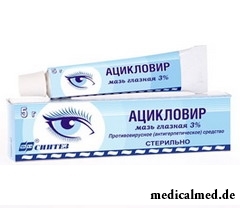 increase in concentration in bilirubin blood;
increase in concentration in bilirubin blood;
• Hair loss;
• Erythropenia;
• Lymphocytopenia;
• Leukopenia.
At topical and external use Tsiklovir according to reviews can cause:
• The burning sensation arising in the place of application;
• Conjunctivitis;
• Blepharitis;
• Superficial dot keratitis;
• Itch;
• Skin rash;
• Erythema;
• Peeling;
• Xeroderma.
At Tsiklovir's hit on mucous membranes can begin an inflammation.
Medicinal interaction of Tsiklovir
The risk of development of nephrotoxic action sharply increases at simultaneous use of Tsiklovir with nephrotoxic drugs, especially against the background of renal failures.
Strengthening of effect of Tsiklovir is noted at co-administration with immunostimulators.
Storage conditions
Tsiklovir in the form of tablets it is possible to store no more than three years, in the form of outside ointment and cream – up to two years (on condition of observance of the recommended storage mode).
The educated person is less subject to brain diseases. Intellectual activity promotes formation of the additional fabric compensating sick.

Such trouble as the milkwoman's attack, at least once in life happened almost to each woman. Prevalence забол...
Section: Articles about health
The popular expression "run from a heart attack" became the motto of the people supporting active lifestyle. Moreover, run became a peculiar fashionable tendency: sales of racetracks and the accompanying goods for run are at permanently high level. Really...
Section: Articles about health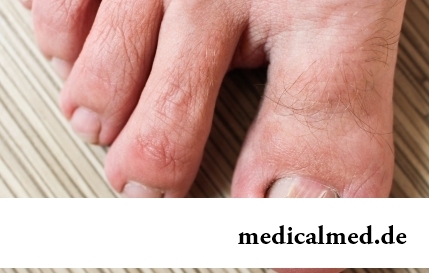
The word "onikhokriptoz" is unfamiliar to most of people, meanwhile quite so physicians call very widespread problem: the growing of edge of a nail into surrounding fabrics causing inflammatory process. Usually the illness affects thumbs of legs, and is followed by reddening, hypostasis, and in the started cases – release of pus. Patients complain of the pain amplifying when walking, problems with the choice of footwear....
Section: Articles about health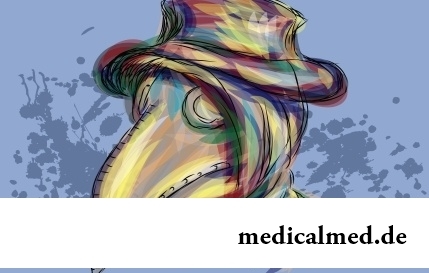
History of mankind contains several tens of epidemics whose emergence was compared by eyewitnesses and historians to doomsday. With...
Section: Articles about health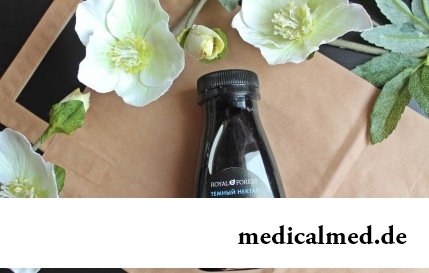
The state of health of the person in many respects depends on food. The organism will well function if during food it receive only useful substances, necessary vitamins and microelements. In this case there will be no problems with digestion, with лишн...
Section: Articles about health
It would seem, to buy drugs in Moscow does not make a problem – a drugstore, and not one, is available for each resident of the capital within walking distance. And, nevertheless, Internet drugstores become more popular – what it is possible to explain such phenomenon with? Actually there is a lot of reasons and if to formulate them it is short, then the most suitable word will be - "conveniently". We suggest to get acquainted in more detail with pluses and minuses of online drugstores that buying drugs, not to make the wrong choice....
Section: Articles about health
Each person knows that fervescence is an illness sign. However about existence of diseases can to suite...
Section: Articles about health
Childbirth is the most important event in life of each woman. We are women we give birth to the new little man on this light. Now the tendency to that was outlined, as men want to participate in labor too. But there is a question and whether it is worth allowing the husband...
Section: Articles about health
The winter swimming in open reservoirs called in our country by "winter swimming" – officially recognized sport and one of the most extreme ways of a hardening of an organism. This occupation has an old story and adherents in many countries. The international competitions in winter heats on open water, and every two years – the World Cup are annually held. Despite huge popularity and the proved advantage for health, winter swimming is still surrounded with hardy delusions. Ра...
Section: Articles about health
We present to yours the TOP of the medicamentous means exerting the stimulating impact on a potentiality, i.e. on ability of a muzhcha...
Section: Articles about health
Water with a lemon - idle time in preparation drink which supporters of a healthy lifestyle already managed to appreciate. Used in a warm look and on an empty stomach, it is one of the most useful prophylactics allowing to prevent tens з...
Section: Articles about health
Iodine - one of thirty most important microelements in our organism. The main role of iodine consists in synthesis of thyroid hormones of a thyroid gland - the substances which are responsible for the majority of exchange processes of an organism. It is known that thyroid hormones consist of iodine more than for 65%. The lack of iodine leads to decrease in production of hormones and, as a result, development of a hypothyroidism. The long condition of deficit can become a source of problems of the cardiovascular, bone, digestive SI...
Section: Articles about health
Tea is loved and use almost everything. This drink has tonic properties, contains the tannins capable podavlit...
Section: Articles about health
The metabolism at each person proceeds in own way. However between the speed of this process and disposal of excess weight after all all have a dependence. Unfortunately, the people inclined to try on itself numerous "miracle" diets, not always at...
Section: Articles about health
A lot of things depend on a condition of a backbone in a human body, a backbone - not only a support for a body, it also a receptacle for a spinal cord, that is why malfunctions with a backbone are so dangerous. To treat rachis diseases very difficult and long, it is much simpler and more correct not to bring to a disease. Conforming to the rules provided in this article it is possible to avoid the majority of the problems connected with a backbone including those which are considered to be age, but a cat...
Section: Articles about health
Subfebrile temperature call fervescence to 38 degrees, and subfebrile condition - existence of such temperature from above...
Section: Articles about health
Aspirin (acetylsalicylic acid) – one of those drugs which are known literally to all. It is available in each home first-aid kit, and many accept it at the first signs of an indisposition, often without having a fair idea of properties and a therapeutic eff...
Section: Articles about health
Household skills which to us so diligently imparted in the childhood it appears, not always bring only benefit. According to results of the last researches, some habits which for a long time were considered useful and even necessary can become the reason of serious indispositions. Here only seven the most widespread of them....
Section: Articles about health
People know that thermal sources have salutary force long ago. Treatment by natural waters is one and...
Section: Articles about health
On health of the person physicians know about salutary action of animals long ago. About 7 thousand years ago great Hippocrates recommended to the patients riding walks for strengthening of a nervous system and increase in vitality....
Section: Articles about health
About 10-15 years ago existence of the computer in the apartment of the Russian was considered as a rarity and office rooms were only at the first stage of equipment by these useful devices. Today practically in each house there is a computer (and often not one), and a regular user is already every our second compatriot. Convenience and efficiency of personal computers are undoubted, but the people working with them daily have to know also about health hazard which they can predstavlit...
Section: Articles about health
Extracorporal fertilization – one of the most modern methods of controlling with infertility. So far it already helped znach...
Section: Articles about health
All of us, unfortunately, should face flu nearly an every year. It would seem, so frequent disease has to be studied already up and down, and each person, at least once by it had (and the number of such people in our country aims at 100%), a dolzha...
Section: Articles about health
Life expectancy in various regions of Earth is not identical. Social stability, economic wellbeing, availability and level of medical care, household comfort, literacy of the population in the field of respect for sanitary and hygienic norms and many other factors exert impact on it. However one parameter remains to the general almost for all countries of the world: women on average live for 7-10 years longer, than men. Today we will talk about the reasons of this phenomenon....
Section: Articles about health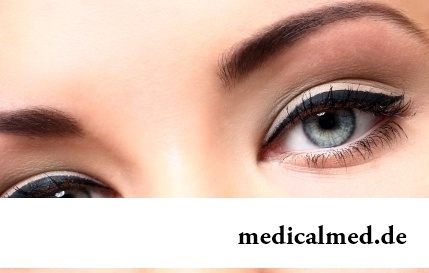
Eyes – unique body on the structure thanks to which the person obtains about 80% of information on the world around: about a form...
Section: Articles about health
Venereal diseases in medicine are called the infections which are transmitted preferential sexually, now they and are called - infections, sexually transmitted, or STD. Among them is also life-threatening. In spite of the fact that majority...
Section: Articles about health
It is pleasant to state a possibility of improvement of quality of life of people with problems of functioning of secretory system. Efforts of talented inventors created products which will be able to provide normal life activity of clients with moderate degree of a disease, it is essential to facilitate the help to patients with strongly expressed disturbances....
Section: Articles about health
